Large Karesansui Garden in Belgium - Landscaping (2019)

Inspired by the World Famous Temple Gardens of Kyoto
The owner of a beautiful house with a spacious garden in Loenhout, Belgium, asked us to enhance
their Japan-inspired garden to a highly authentic Karesansui garden based on the Temple gardens
of Kyoto that are famous all over the world.
Initially, a veranda made of Western Red Cedar wood was installed, with a few careful cuts to
accommodate a Kutsunugi-ishi stone. This single large stone, commonly found in Japanese gardens,
serves as the first step down from the veranda to the garden, used for putting on and taking off
shoes. With the Kutsunugi-ishi stone embedded into the veranda, the team proceeded to the left
part of the garden, transforming it into a full-fledged Karesansui garden. Various rock formations
and solitary rocks were strategically placed according to ancient Japanese guidelines, followed
by the addition of stepping stones. Apart from granite slabs, antique millstones were repurposed
as stepping stones, providing a unique look commonly seen in Japanese gardens. Lastly, the garden
was filled with authentic Shirakawa-suna gravel from Kyoto, a traditional choice used in most
Japanese gardens. The yew hedge forms a beautiful natural border at the end of the garden and
received additional care from our gardeners. Japanese Satsuki Azaleas were used as ground cover,
creating a rolling, colorful landscape, especially during spring.


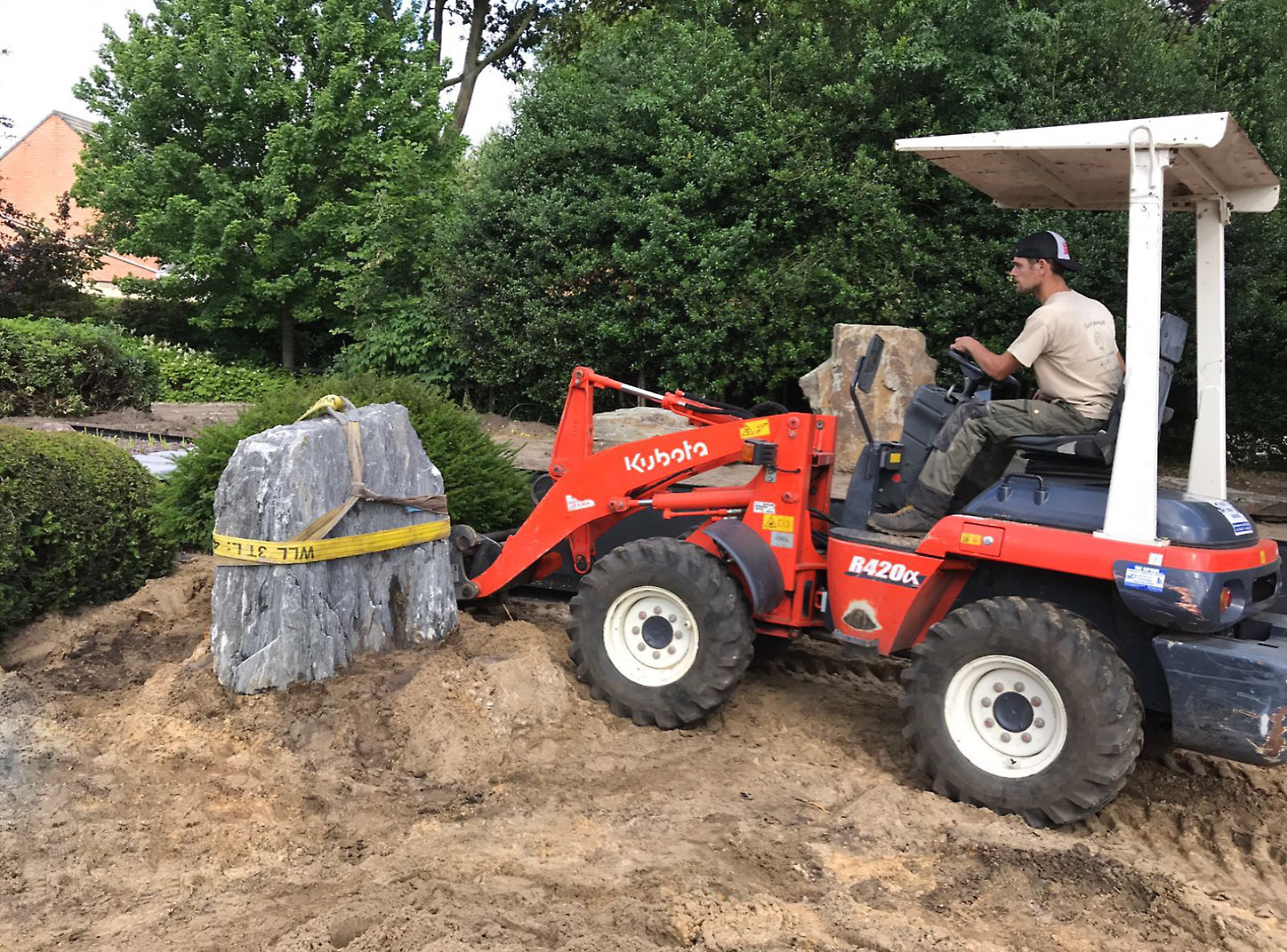
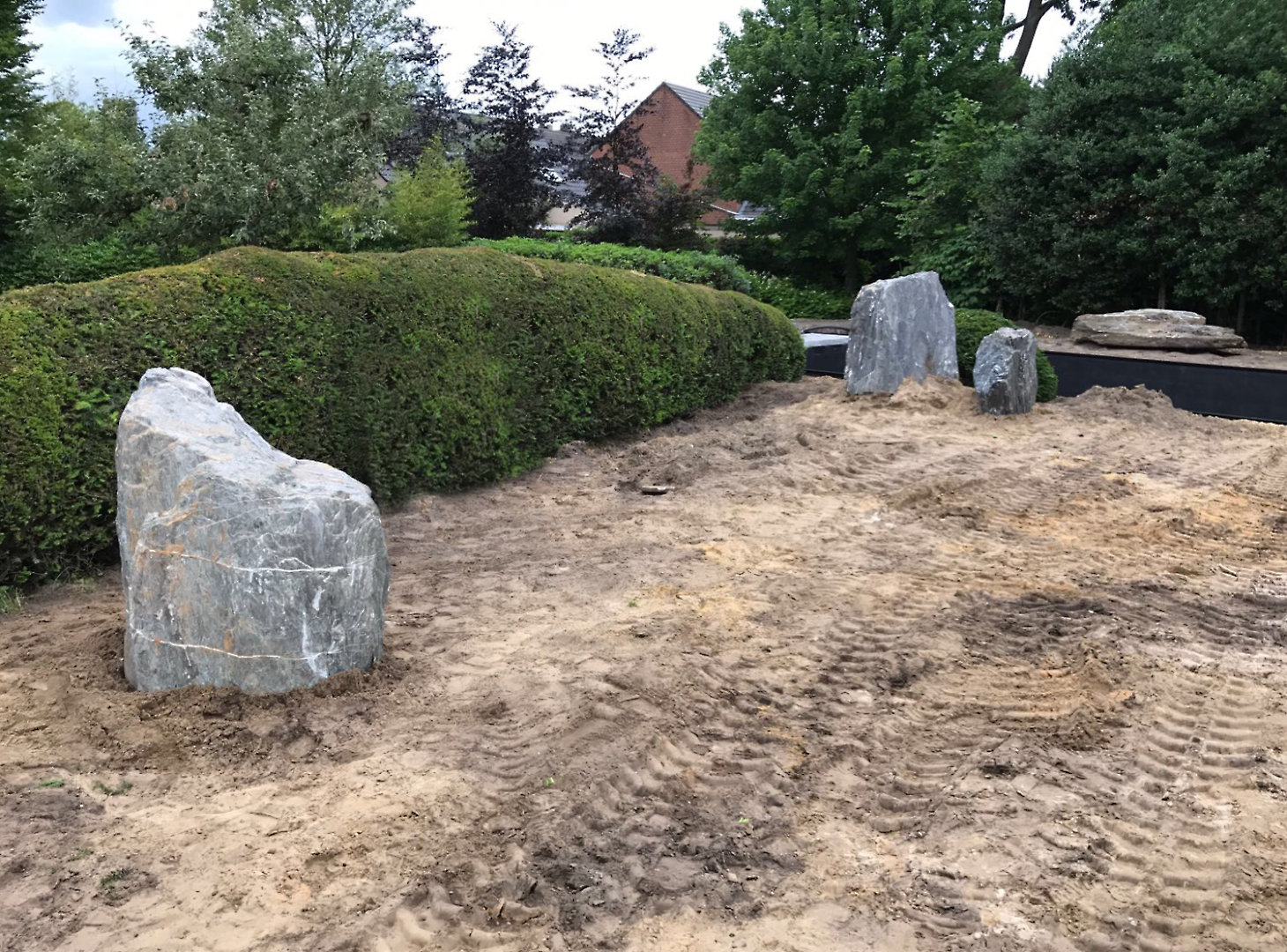
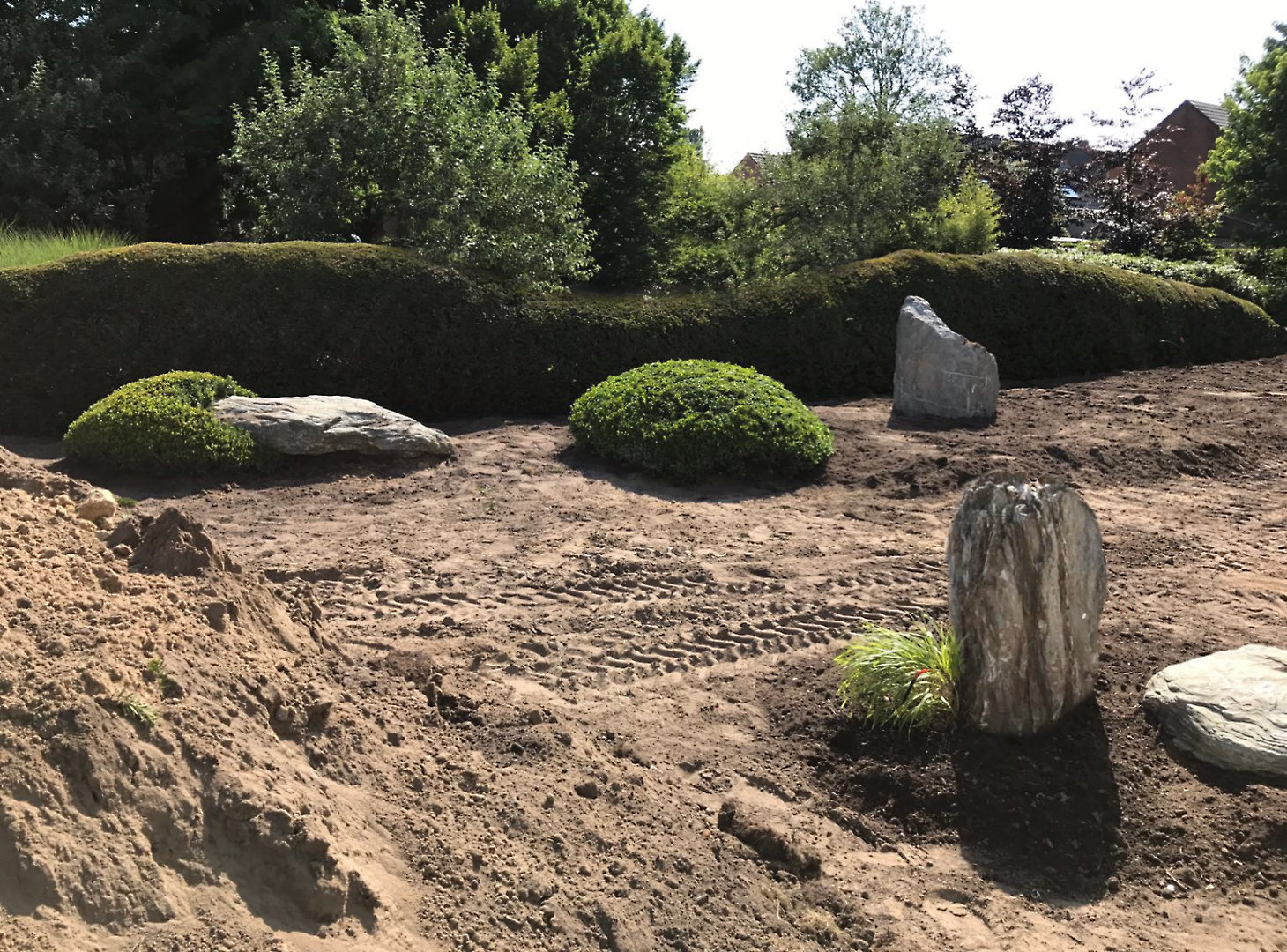
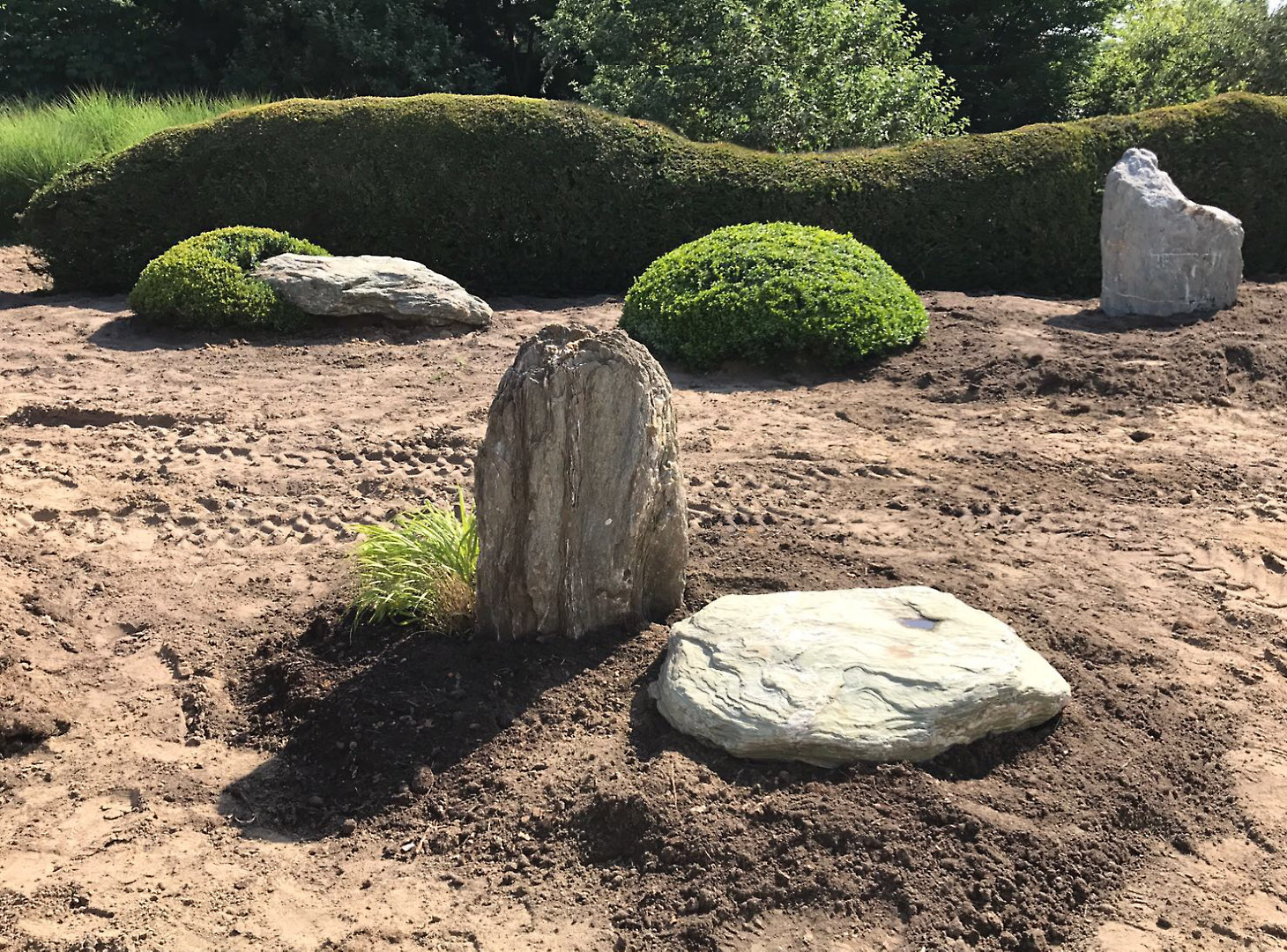
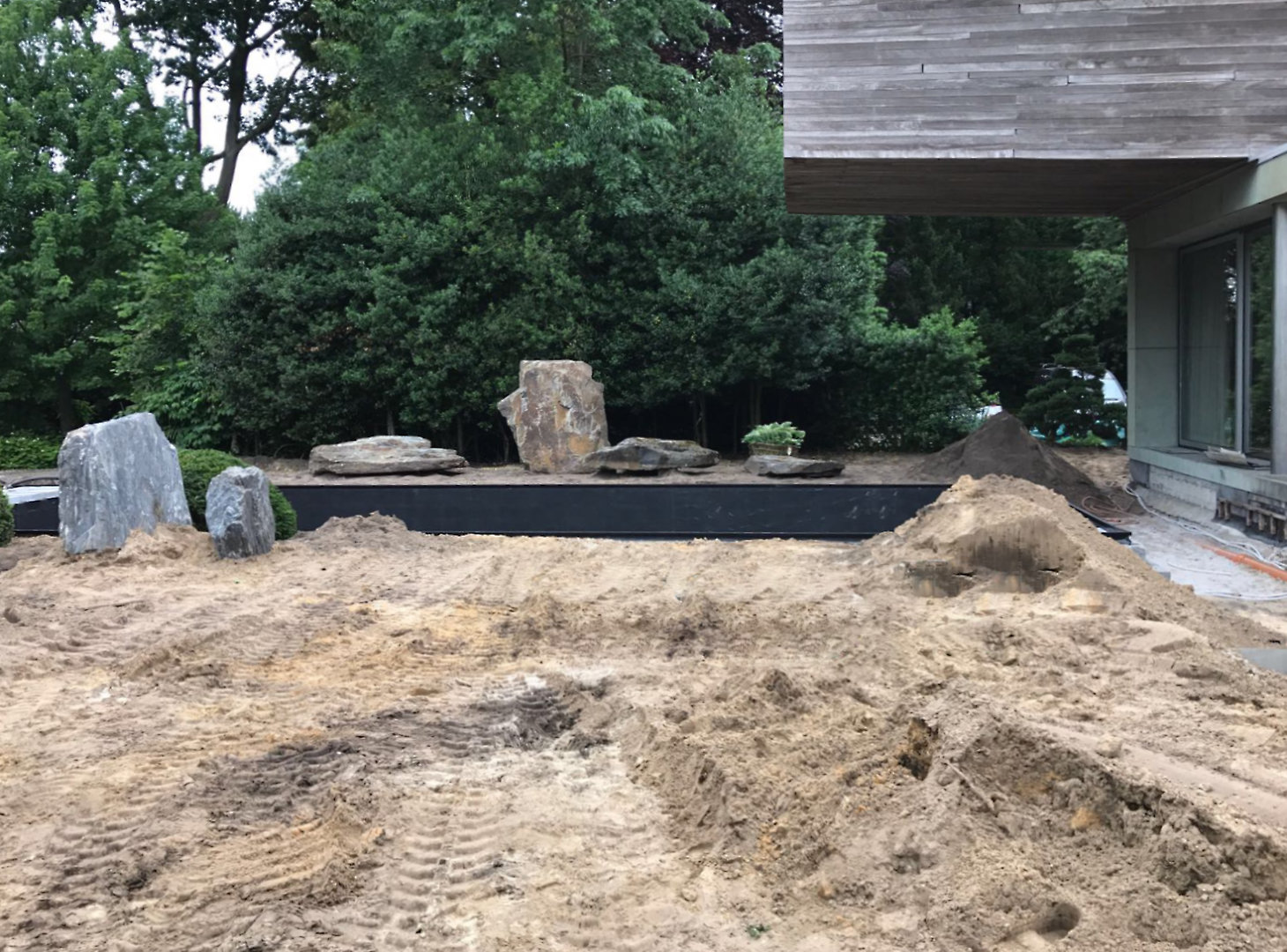
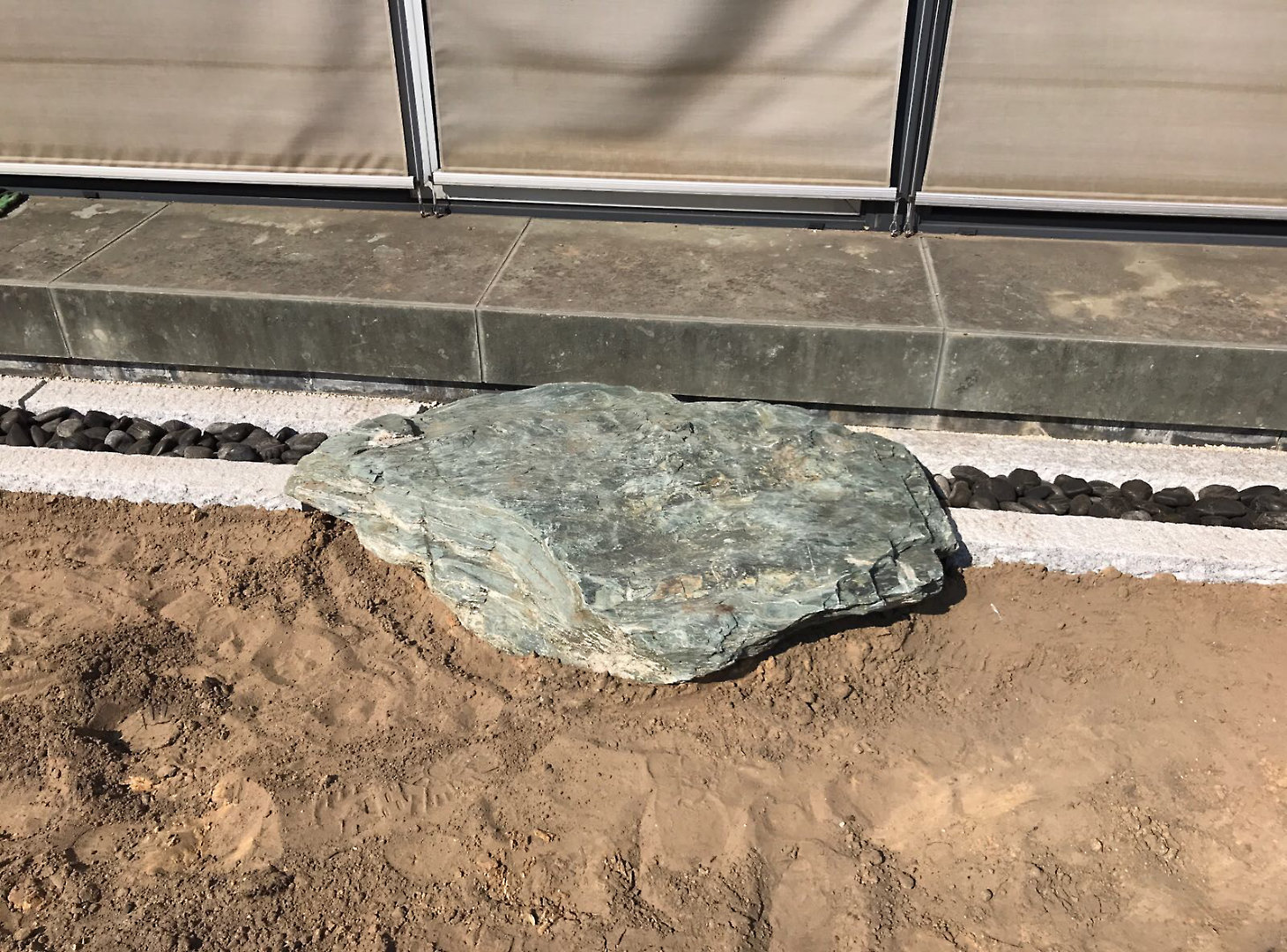
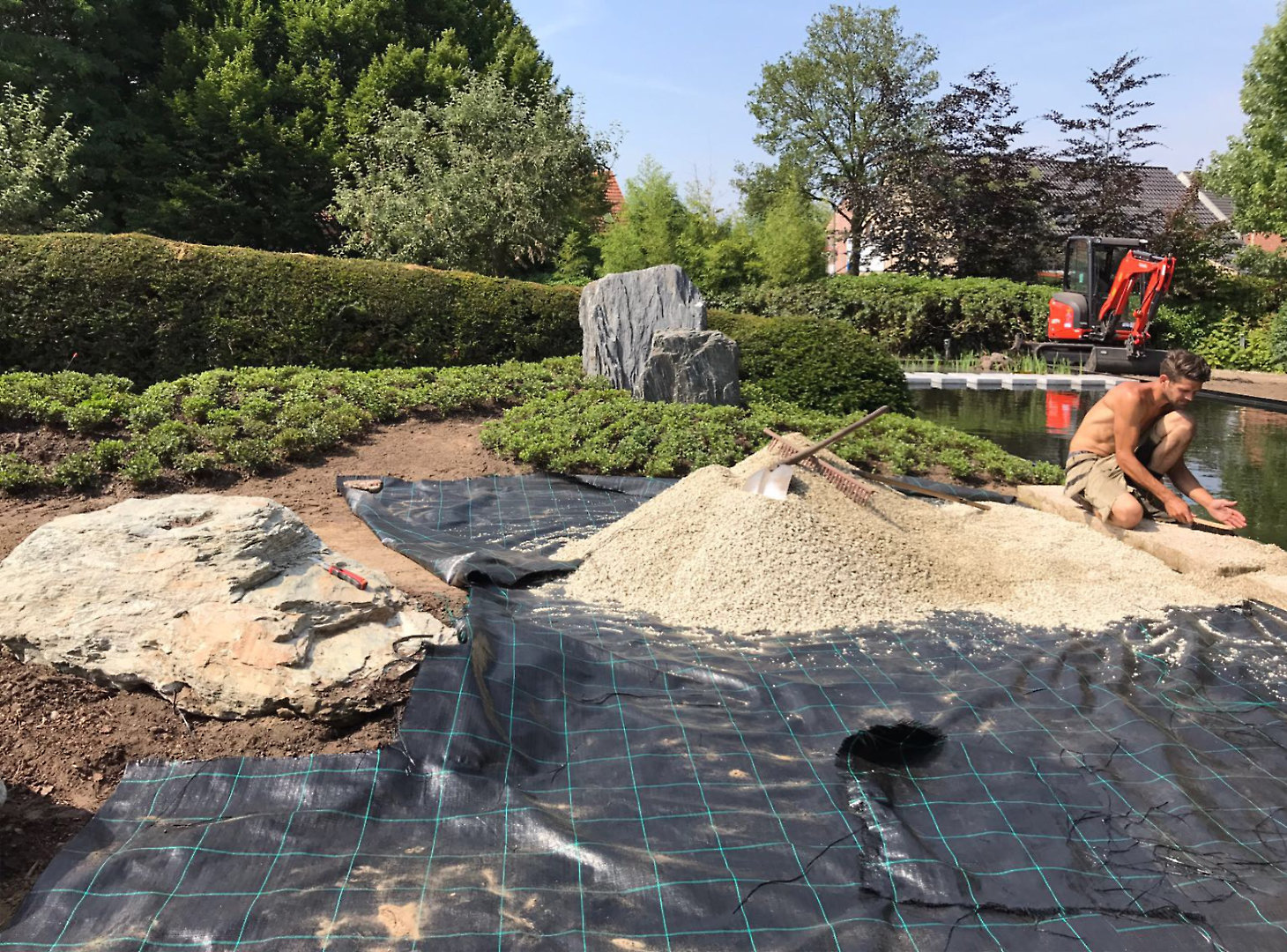
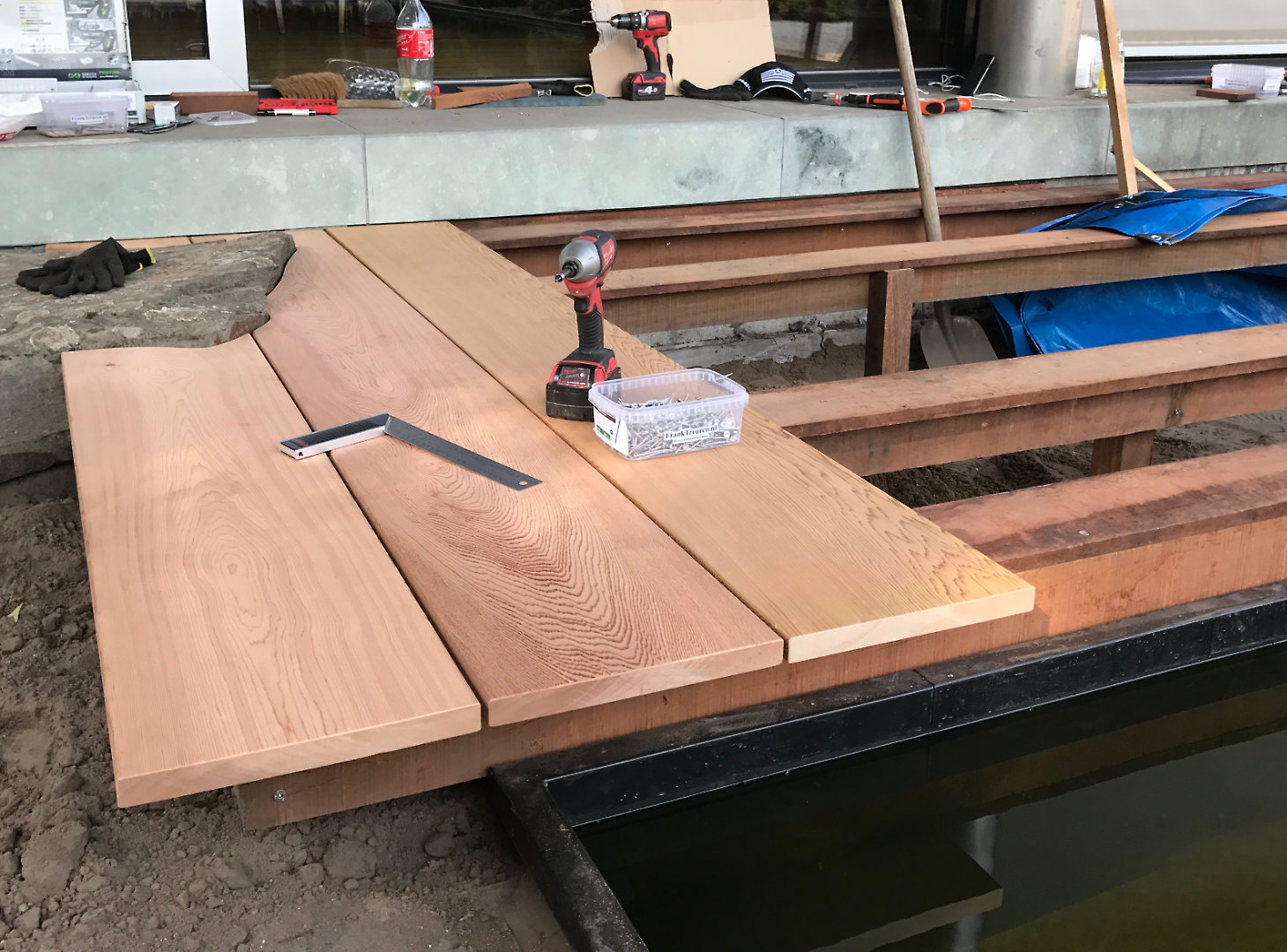
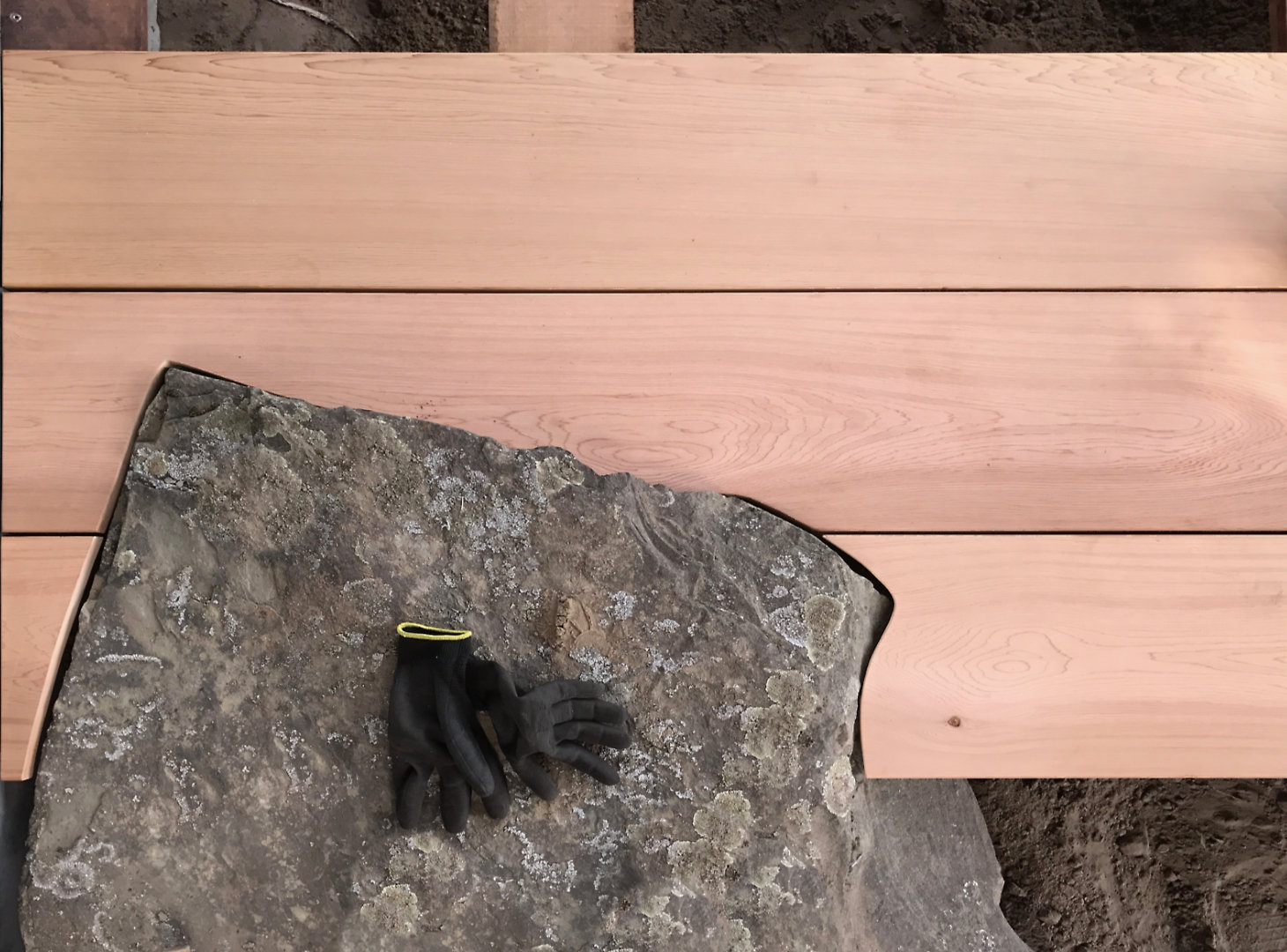
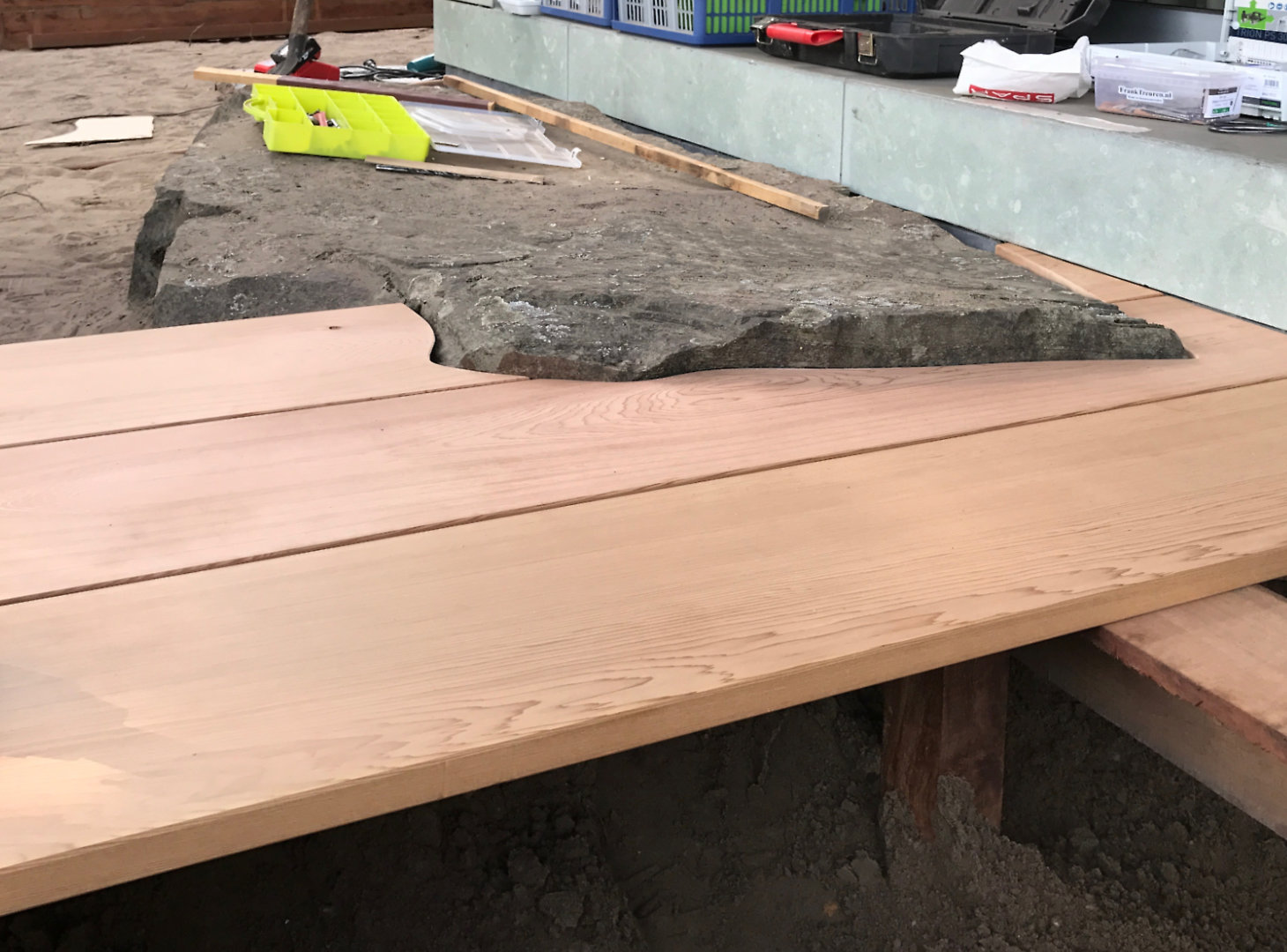
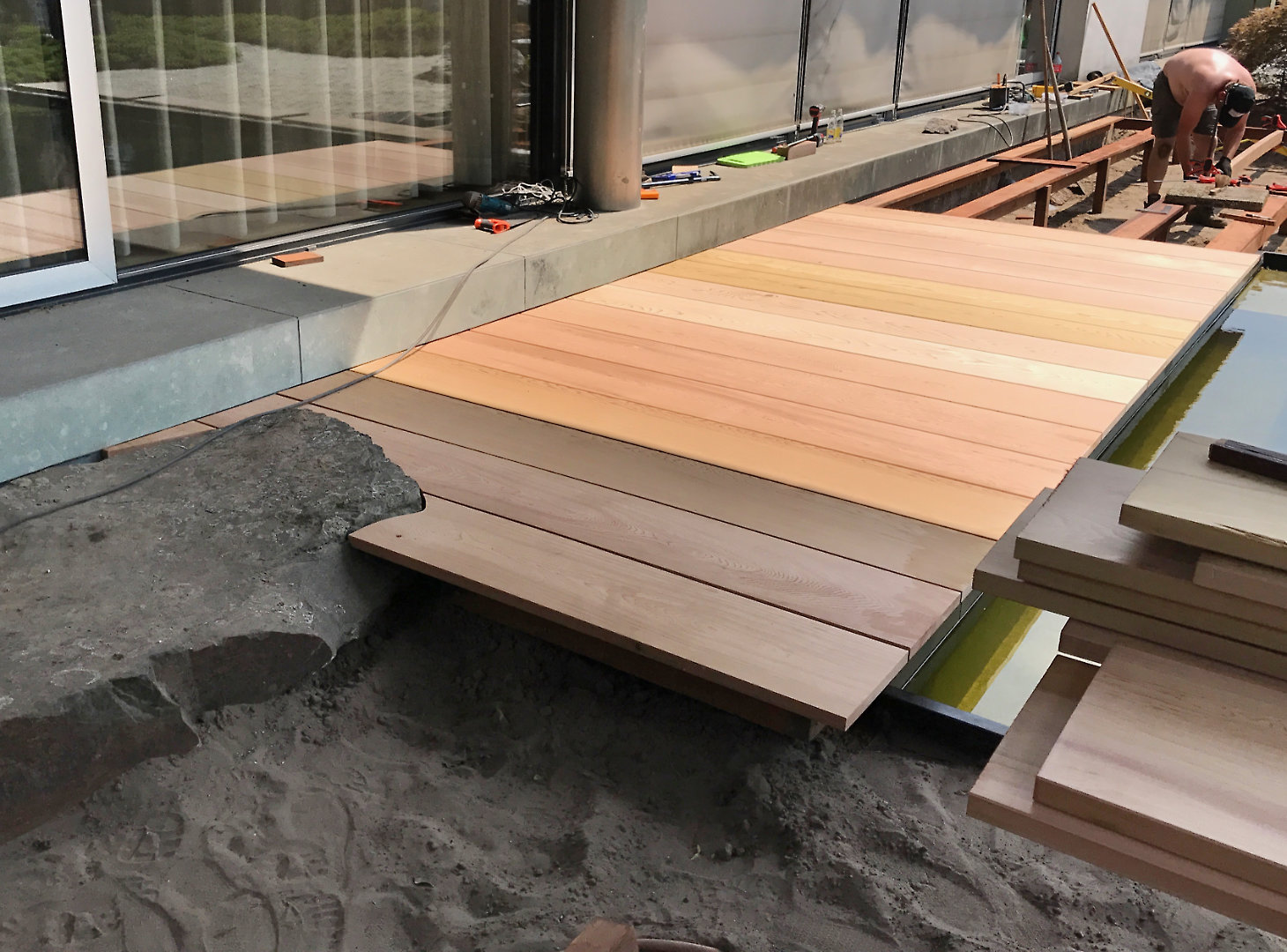
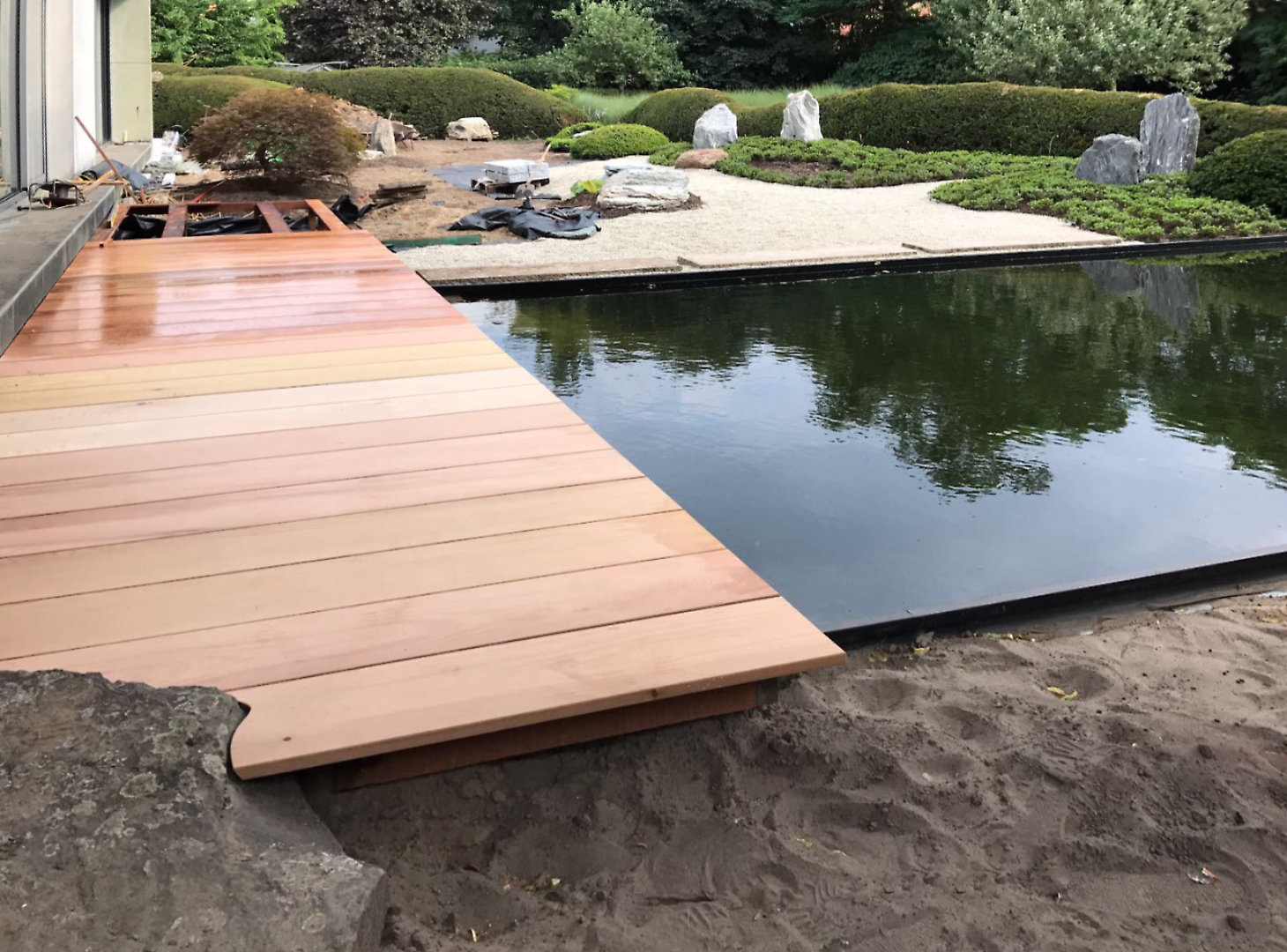
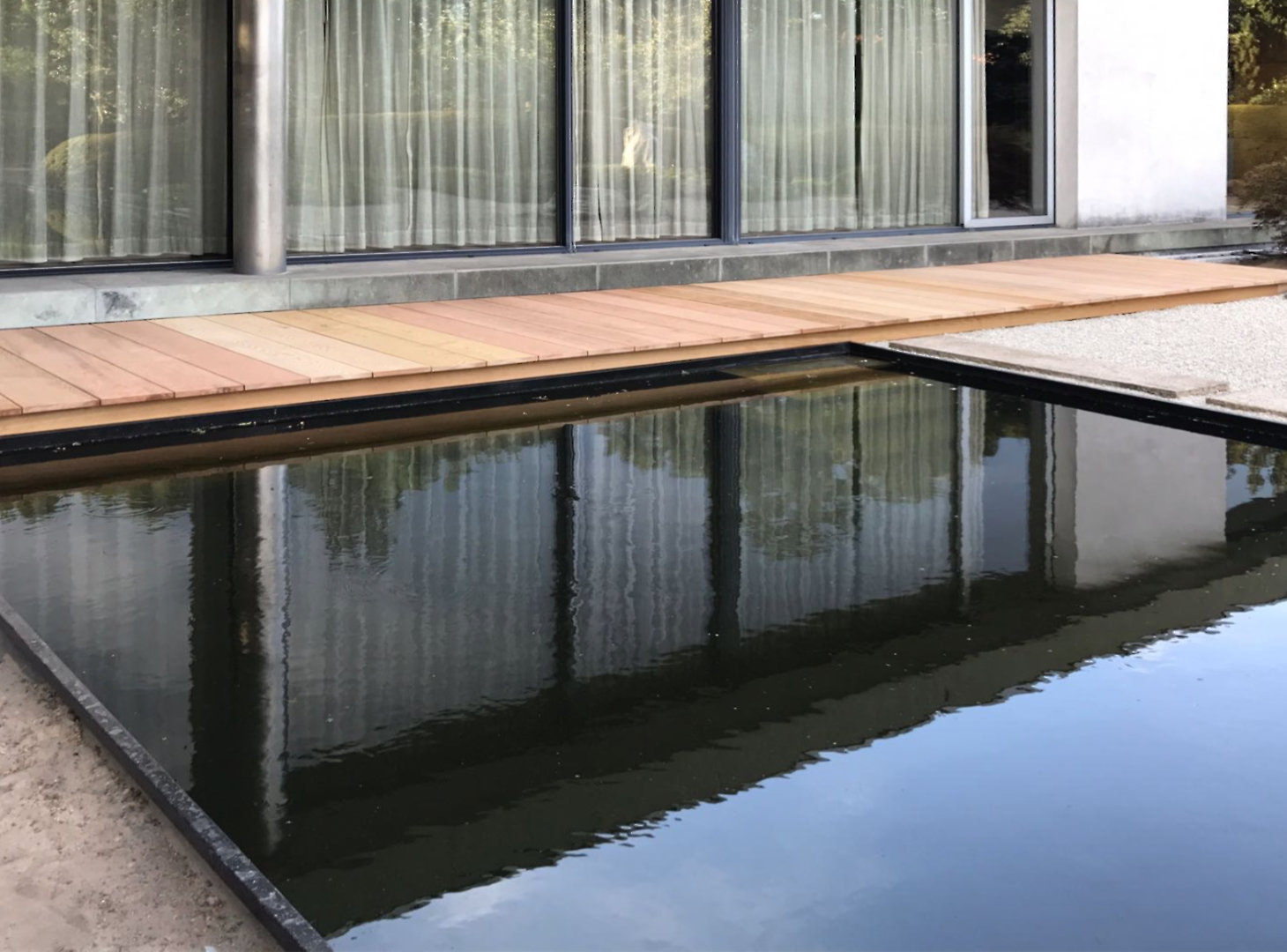
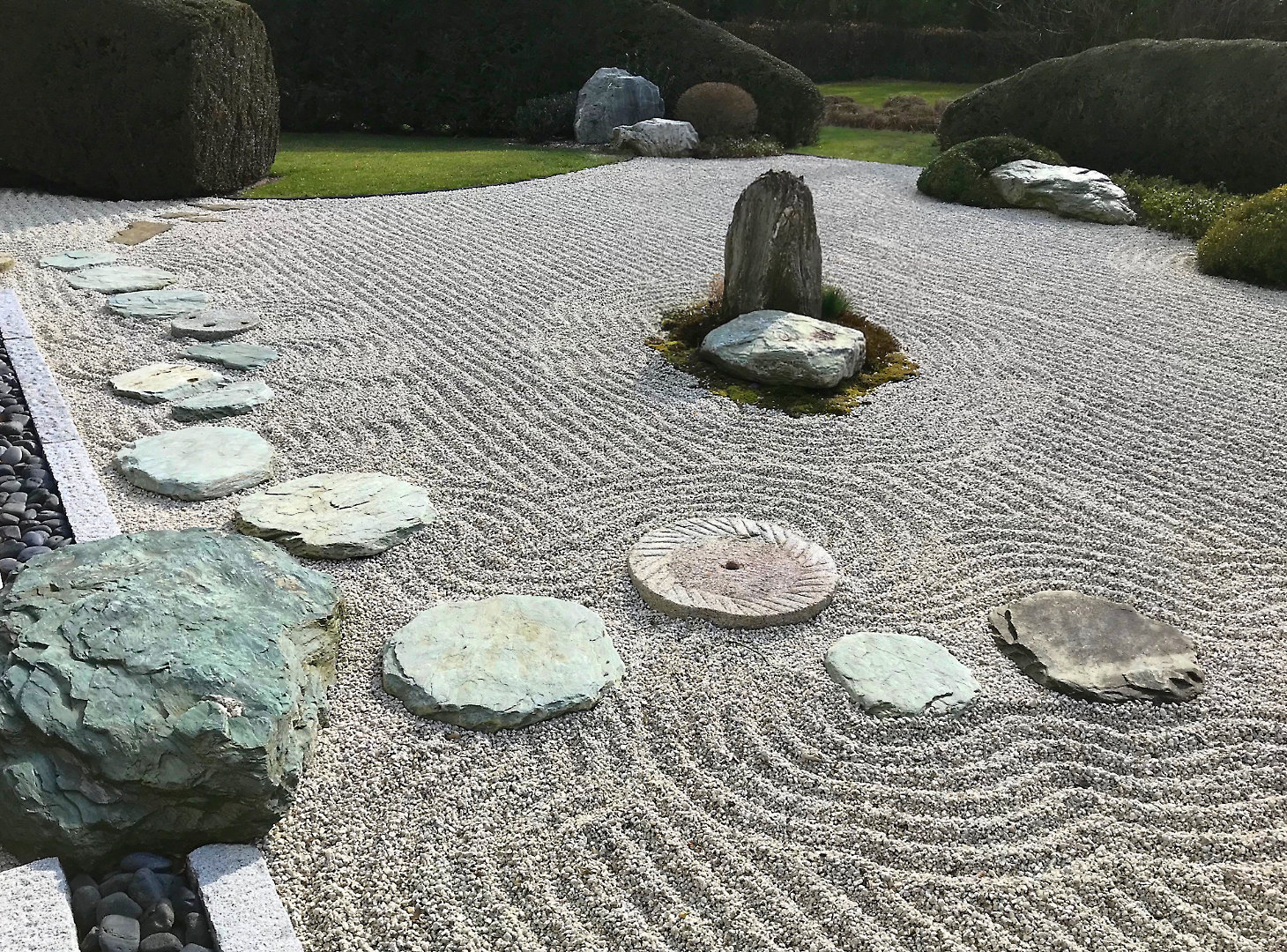
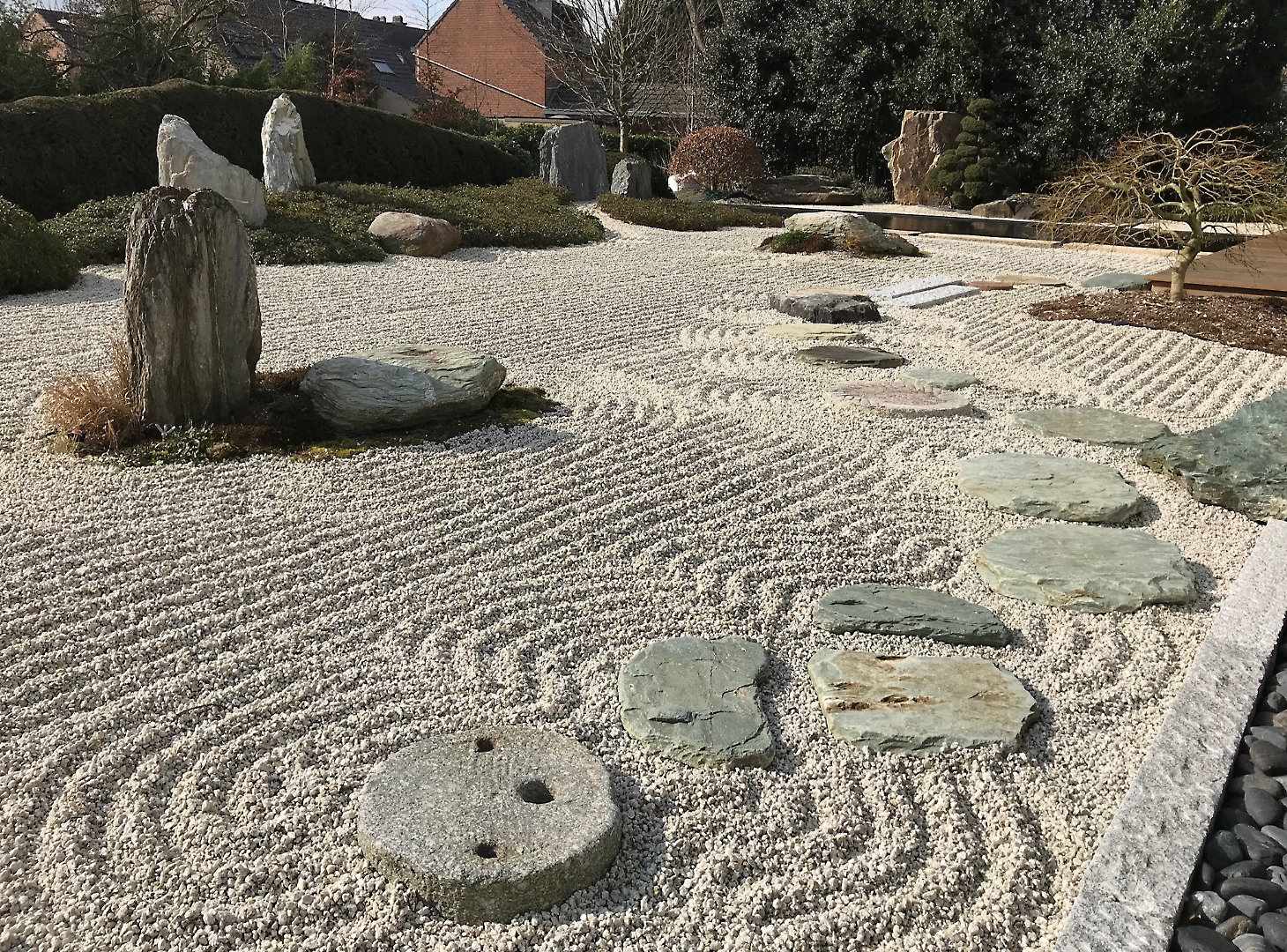
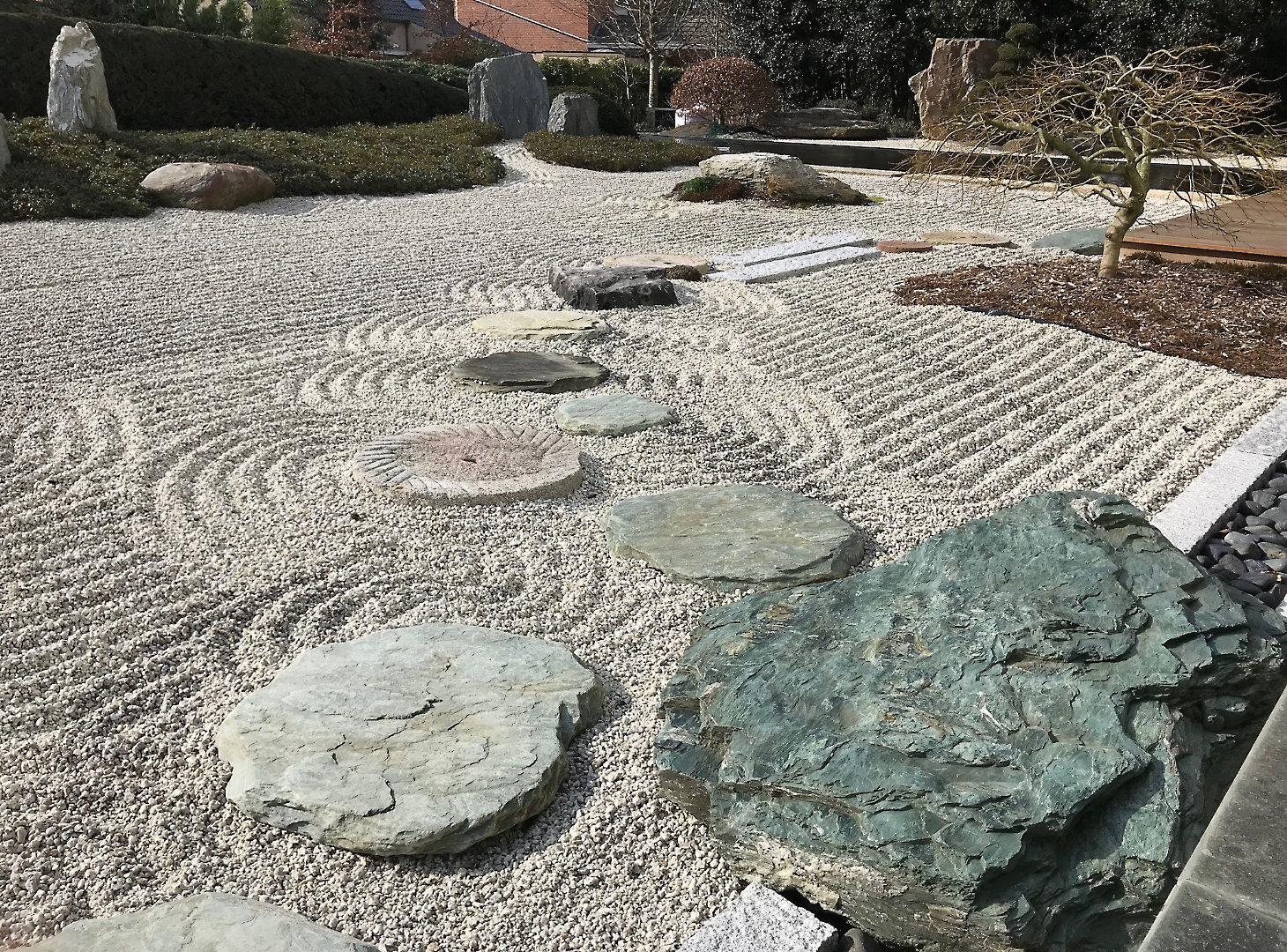
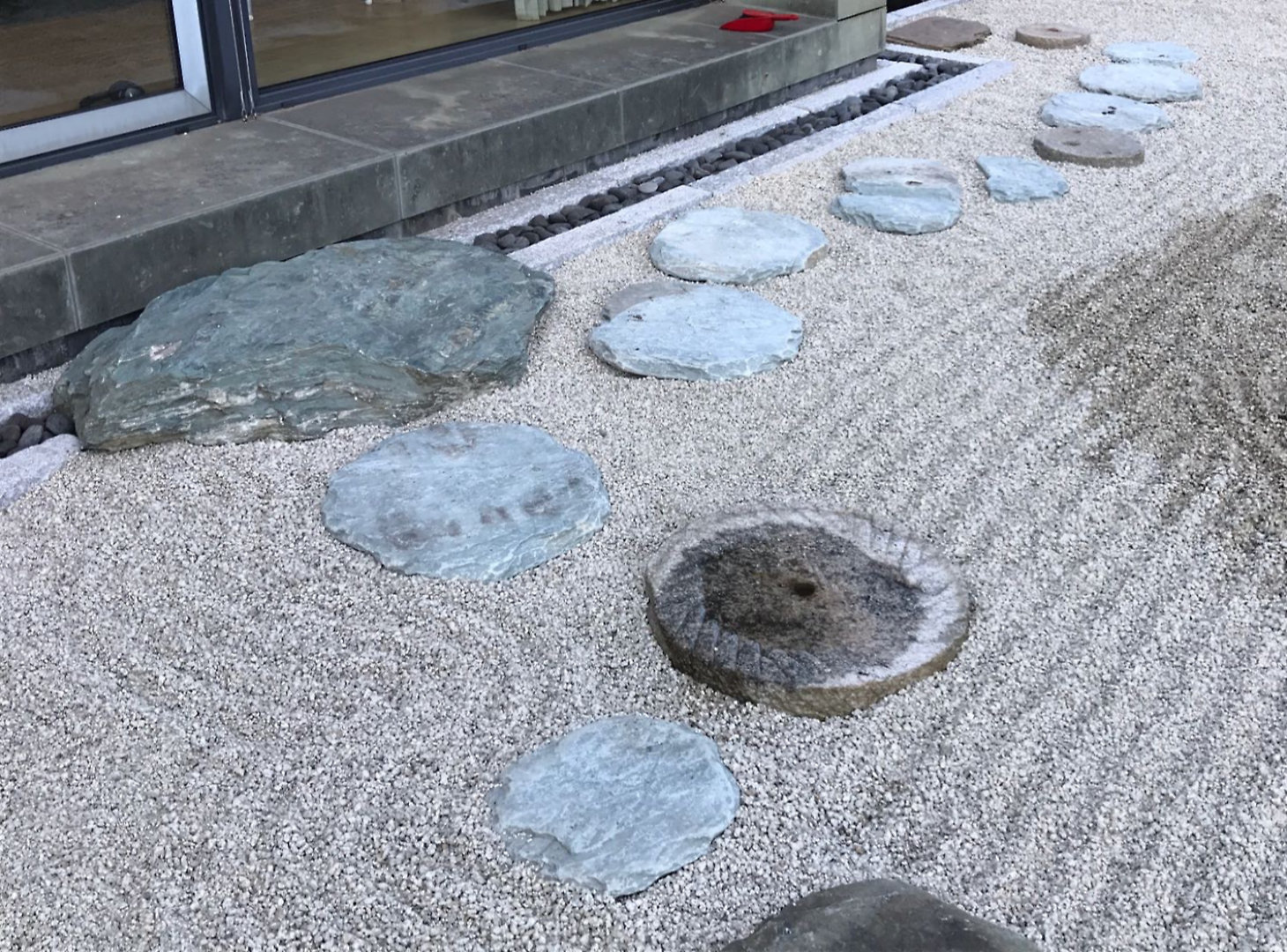
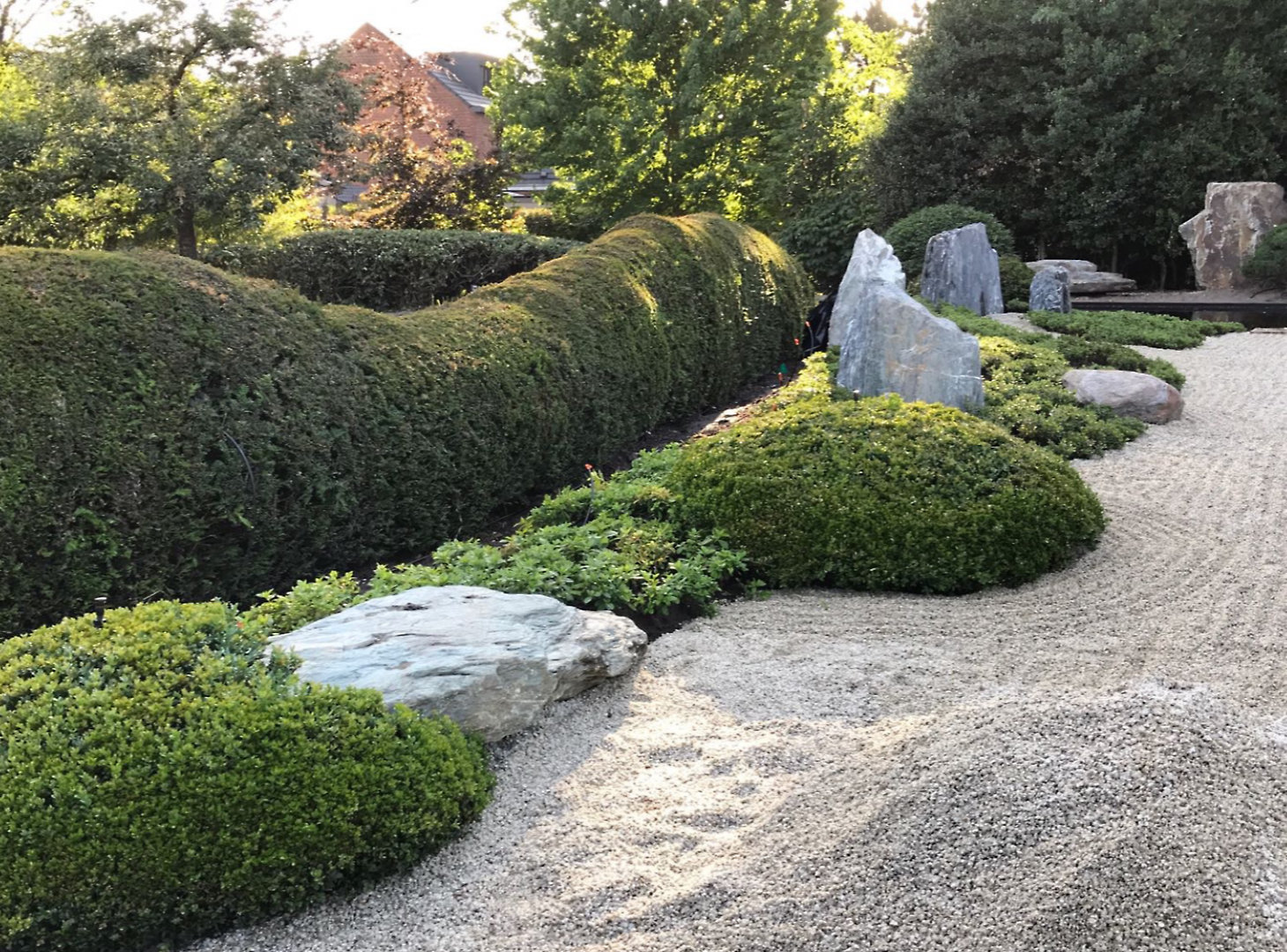
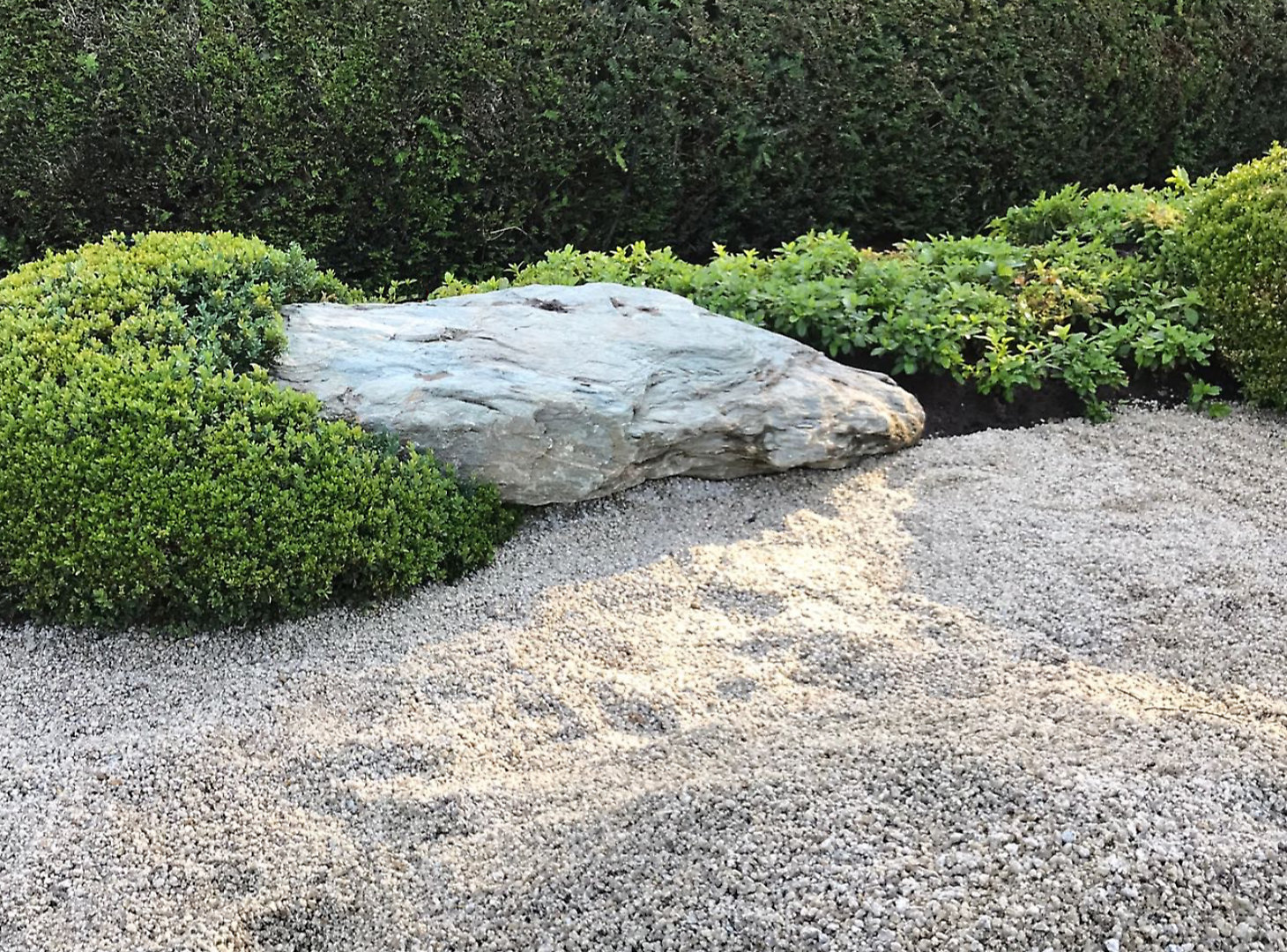
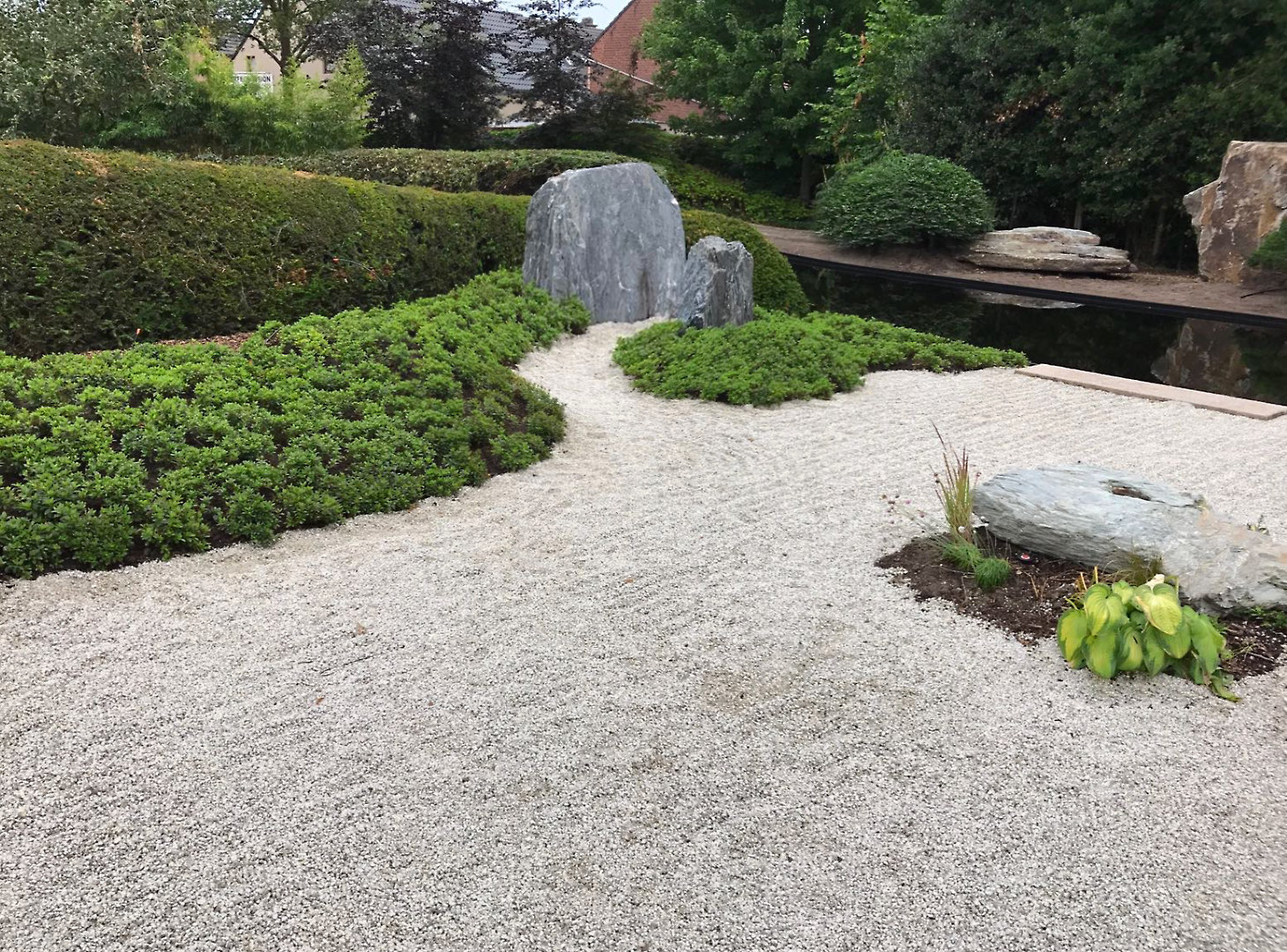
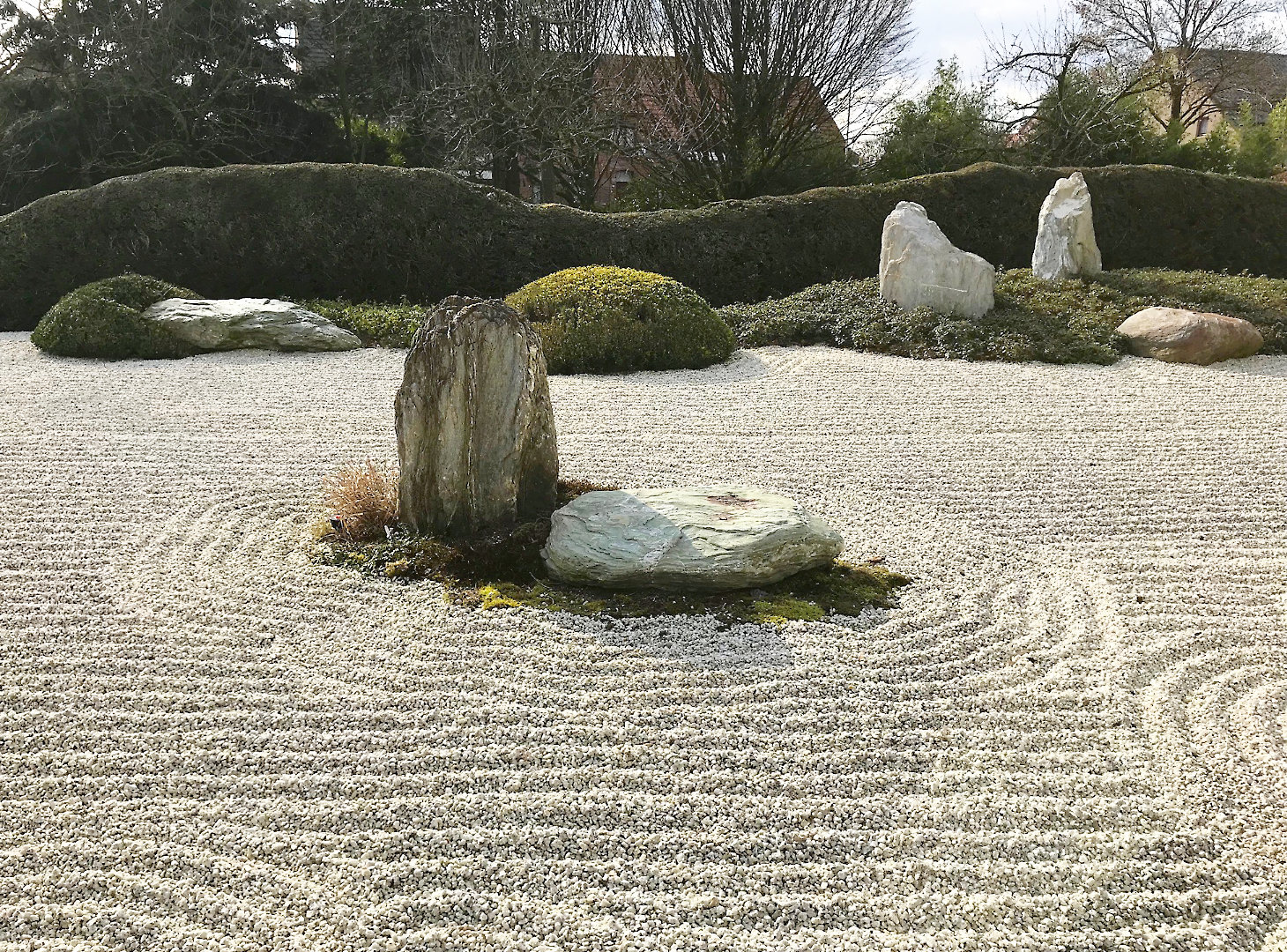
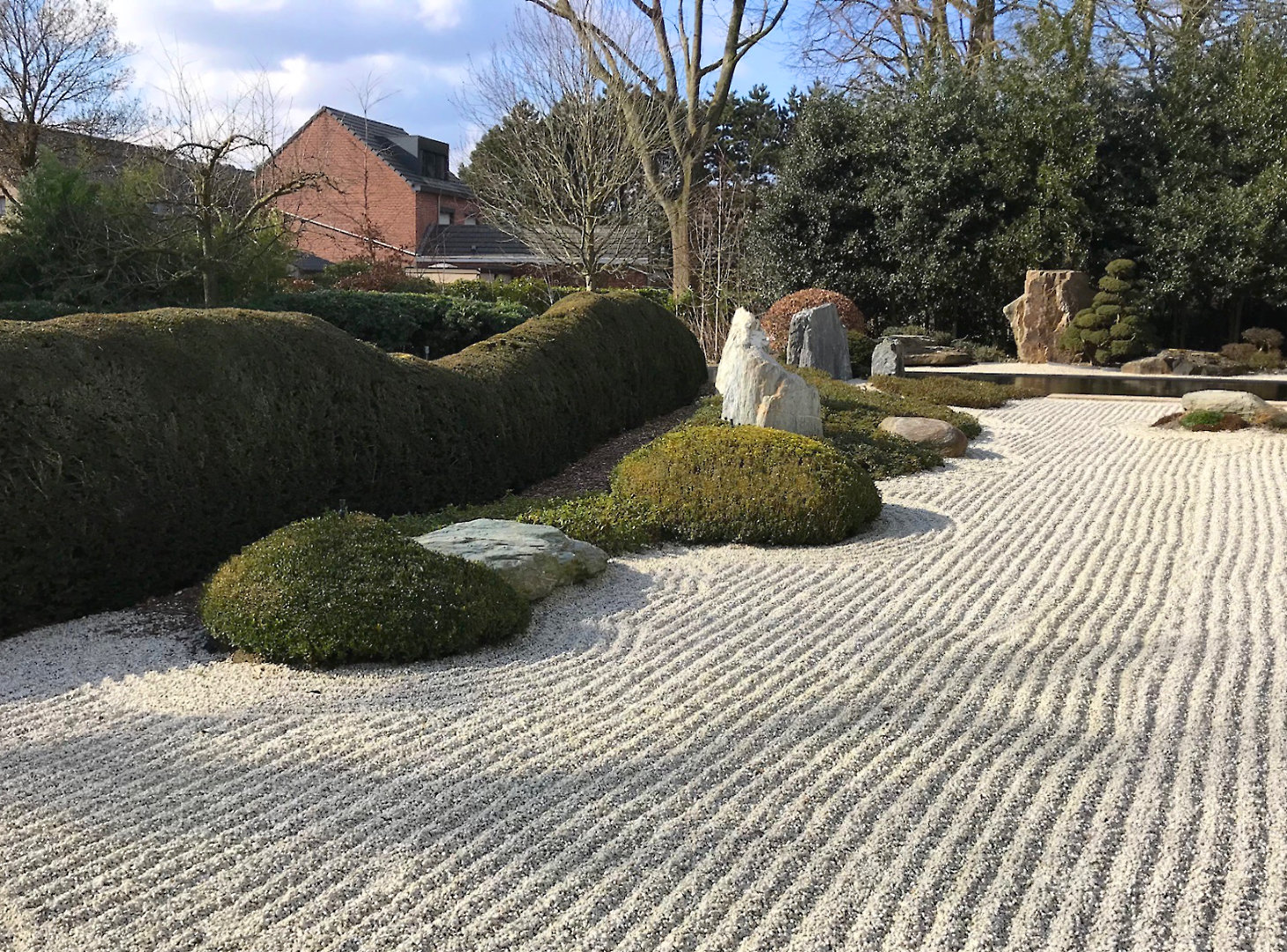
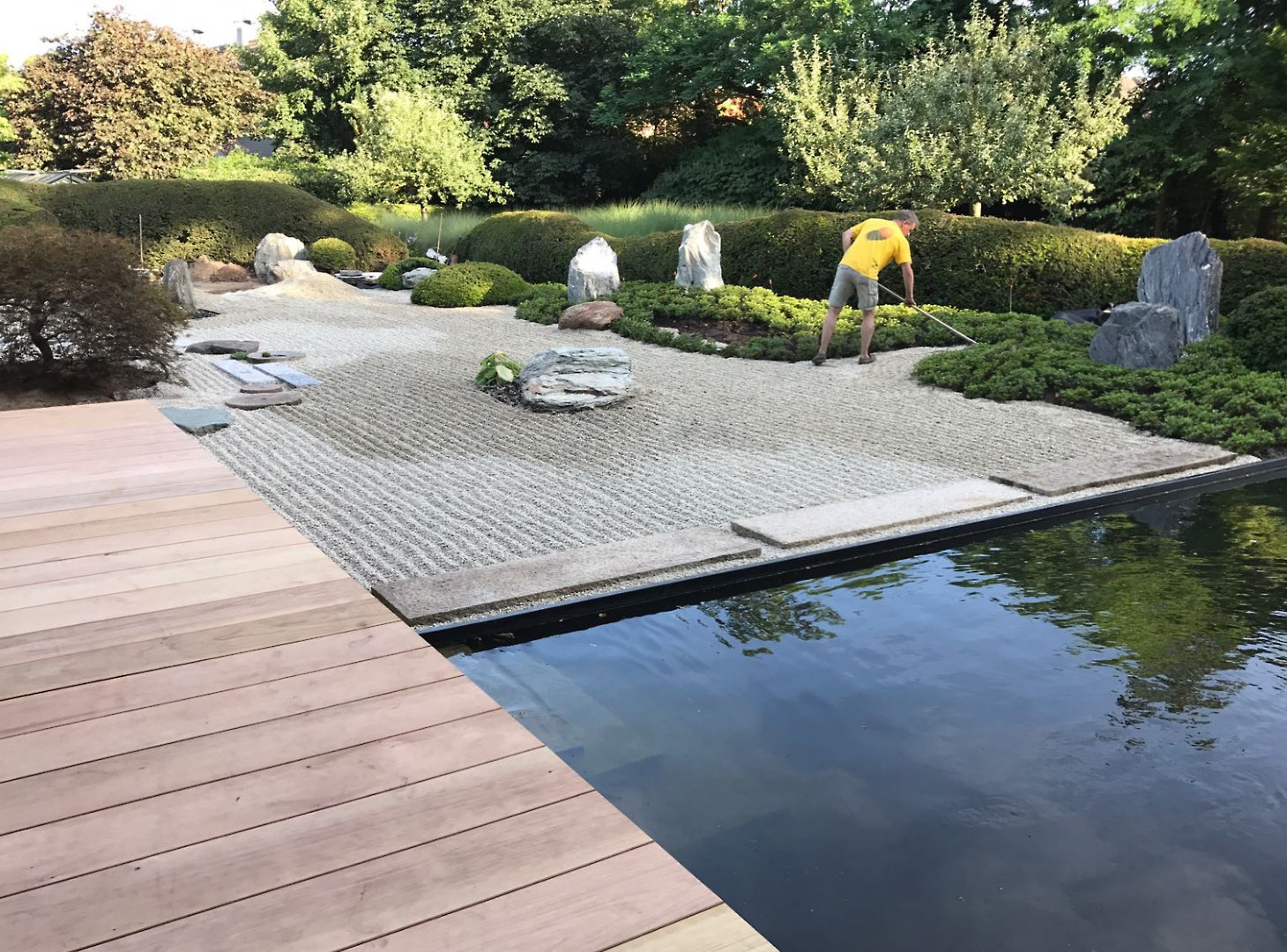
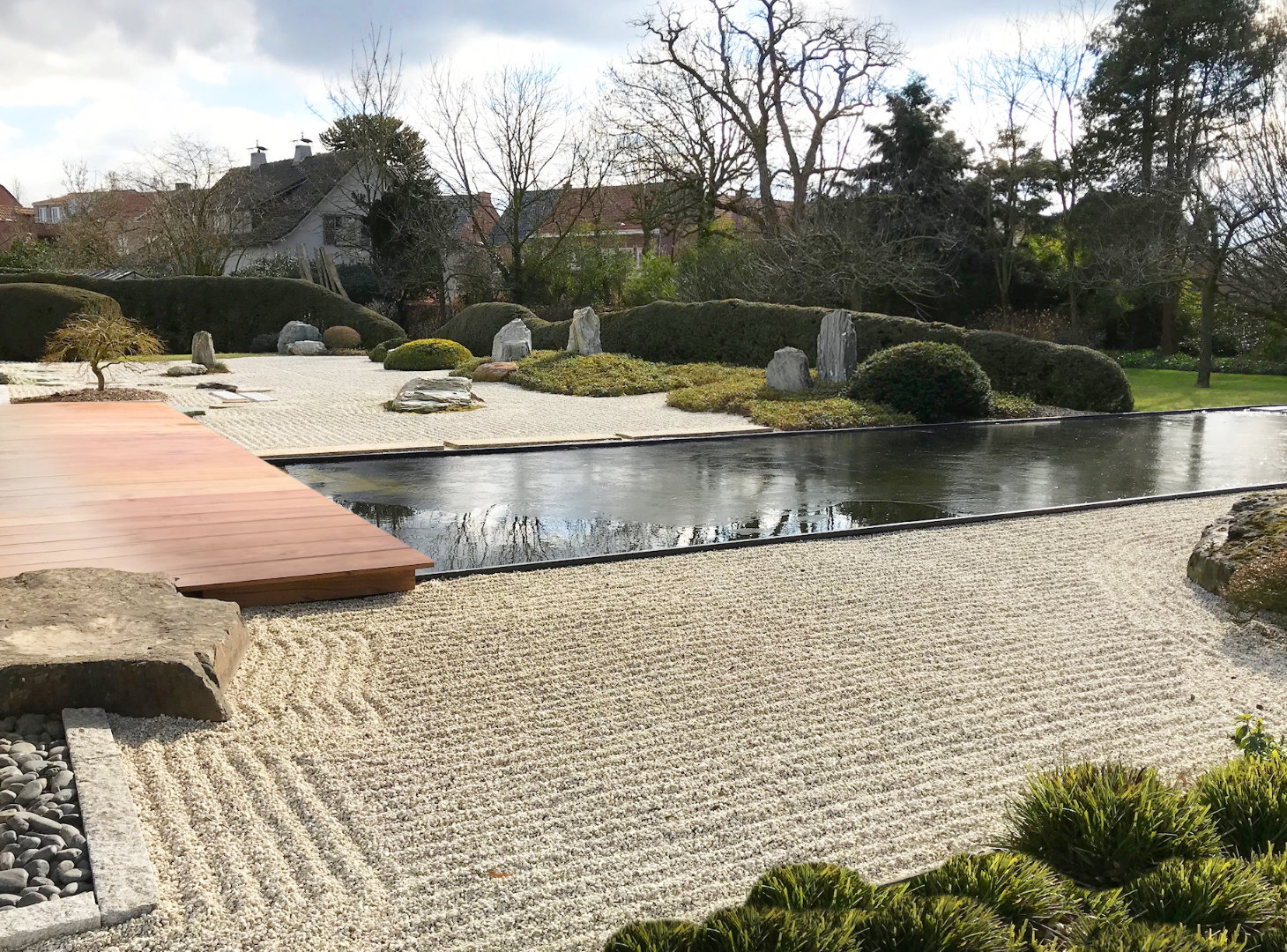
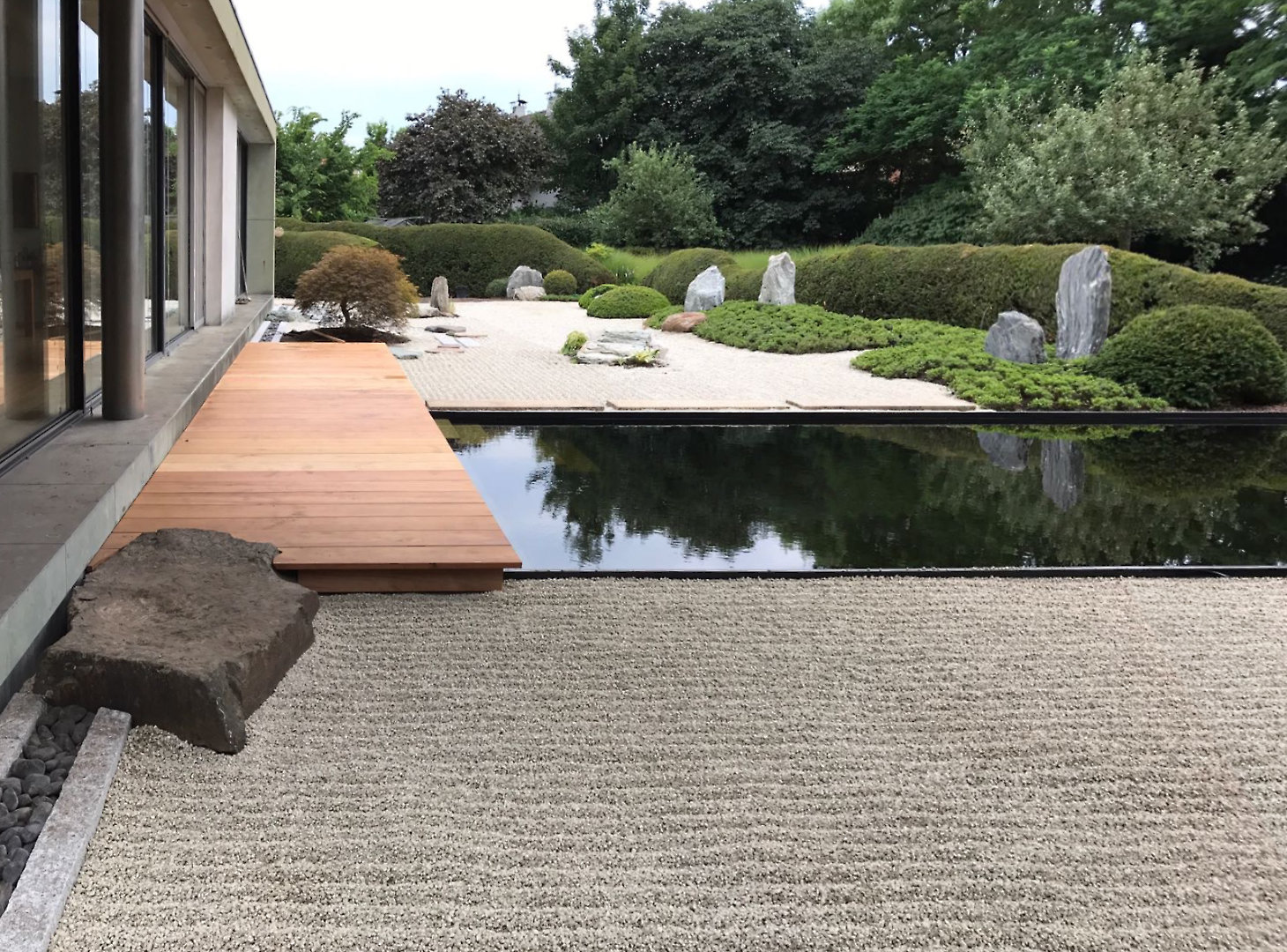









Contact Yokoso Japanese Gardens